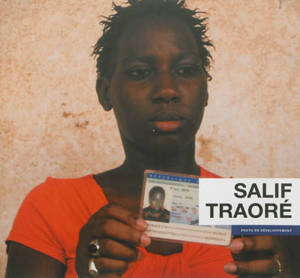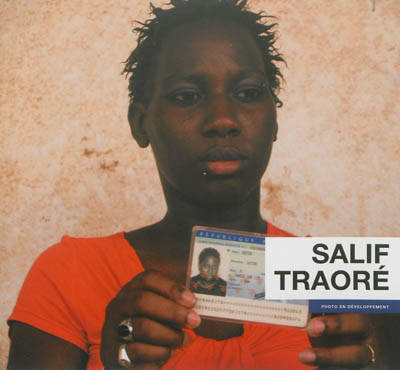
- Retrait gratuit dans votre magasin Club
- 7.000.000 titres dans notre catalogue
- Payer en toute sécurité
- Toujours un magasin près de chez vous
- Retrait gratuit dans votre magasin Club
- 7.000.000 titres dans notre catalogue
- Payer en toute sécurité
- Toujours un magasin près de chez vous
Description
Traoré est le 3e lauréat du prix Élan de l'Agence Française de
Développement, décerné lors des Rencontres africaines de la
photographie de Bamako.
Il raconte le quotidien d'une jeunesse affairée ou désoeuvrée, venant
du Mali, de Côte d'Ivoire, du Congo... Ils ont traversé les frontières
africaines, dessinées aux temps des colonies. Installés à Bamako,
ils se battent pour travailler et réaliser leurs rêves sans passer par
l'Europe. Ils dénouent les barrières culturelles imposées pour définir
de nouvelles identités et bâtir de nouveaux lieux de promesse,
fermant et ouvrant ainsi d'autres frontières. Laquelle frontière est
aussi la barrière visuelle que transgresse Traoré : délimitant un
espace personnalisé, il saisit l'être dans sa singularité et révèle
l'intime de chacun de ses sujets. Eux (l'oreille collée au poste de radio
ou au téléphone) dont le regard, accroché à l'écran de télévision, à
un poster sur les murs, s'évade par de-là les toits du quartier... Salif
Traoré repousse les murs des maisons comme ceux de l'inconscient.
In 2009, Salif Traoré was the 3rd photographer to win the Élan Prize awarded
by the French Development Agency at the African Photography Encounters in
Bamako, after James-Iroha Uchechukwu and Mohamed Camara.
He recounts the everyday lives of young people from Mali, Ivory Coast,
Congo... They crossed the borders established in colonial Africa. They have
all settled in Bamako, and share a determination to live and work in Mali and
pursue their dreams without leaving for Europe. They break through imposed
cultural barriers, defining new identities and building new places of promise.
By so doing, they close and open other borders, including the visual one that
Traoré invites us to transgress. In the latter, he establishes a personalized
space, capturing the singularity and revealing the essence of each of his
subjects: an ear glued to a radio or mobile phone, a gaze that escapes
beyond the curtains, walls, or neighborhood roofs, or that fixes the TV screen,
the posters on the walls... Salif Traoré's work pushes back the walls of the
houses-and those of the unconscious.
Spécifications
Parties prenantes
- Auteur(s) :
- Editeur:
Contenu
- Langue:
- Anglais, Français
Caractéristiques
- EAN:
- 9782351371114
- Date de parution :
- 25-03-12
- Format:
- Livre relié
- Dimensions :
- 220 mm x 200 mm
- Poids :
- 350 g







